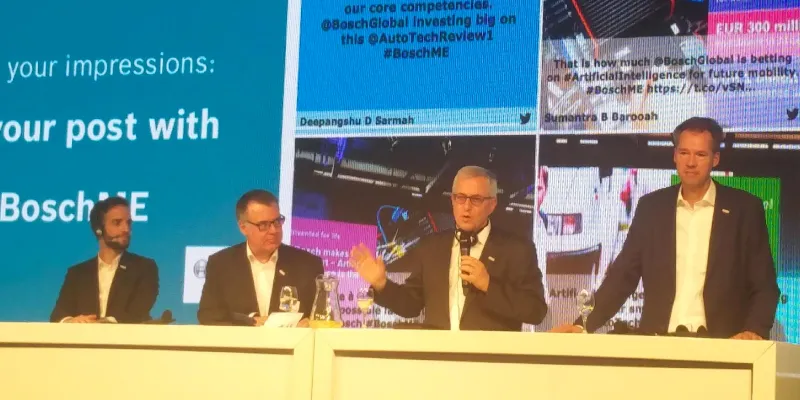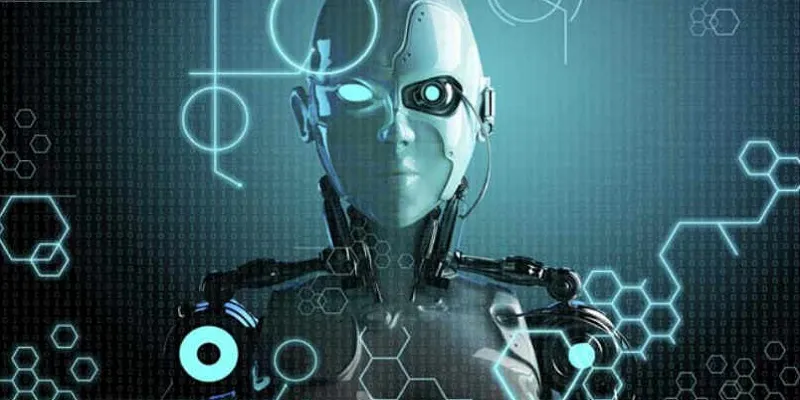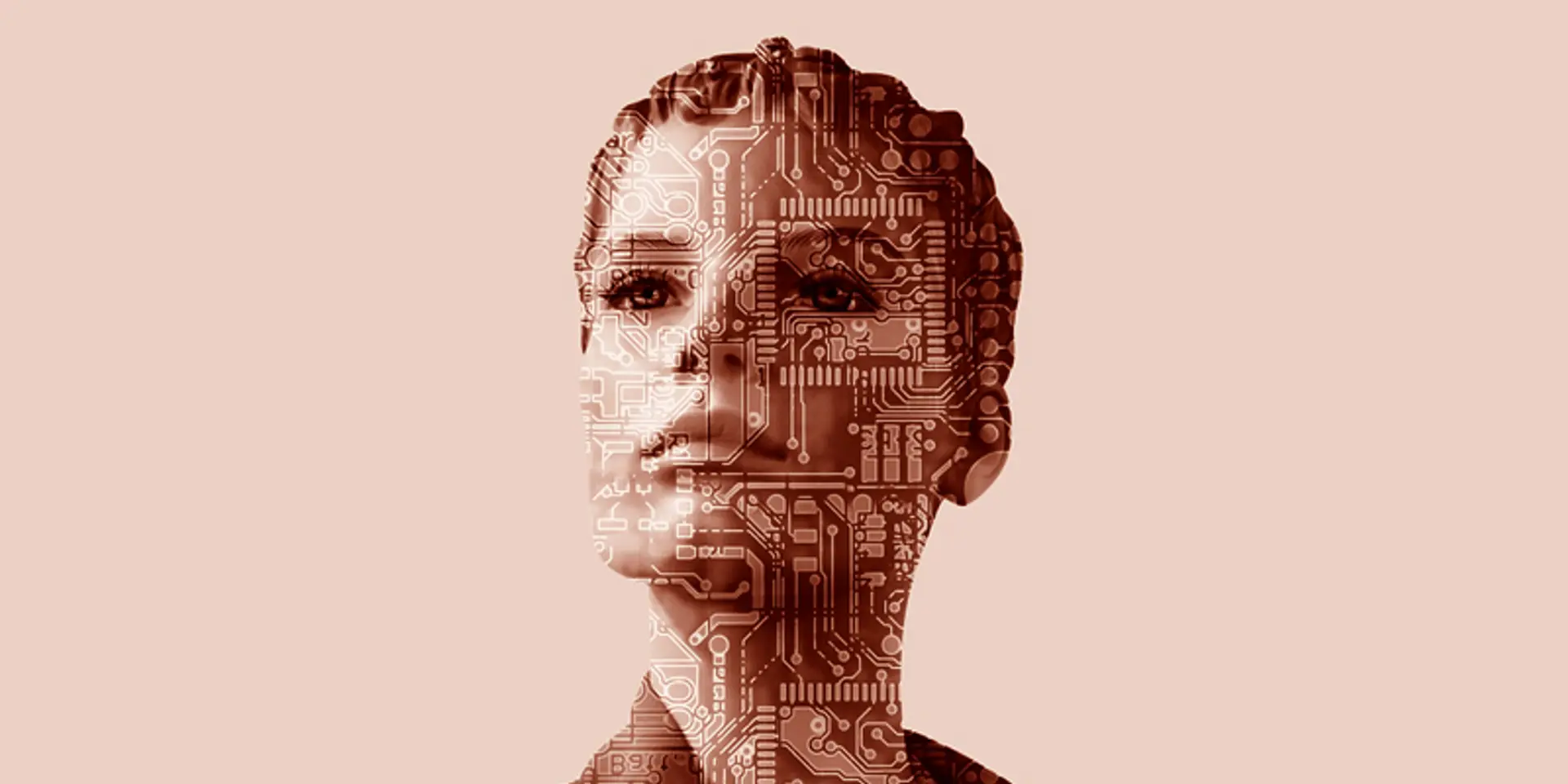Indian, German engineers working on an AI-powered brain – what does it mean for social (dis)order?
Rolf Bulander, Chairman for Bosch Mobility, says societies must decide how artificial intelligence will be implemented in their cultures, especially because in 20 years’ time, 41 megacities will be home to 6 billion people.
Nearly 3,000 engineers from Bosch in both Stuttgart and Bengaluru have one thing in common: they are putting their brains – figuratively speaking – into a super brain. This “brain” can crunch 30 trillion data points per second and will process data three times faster than a human brain can. This “brain” – powered by artificial intelligence has no reason to feel guilty about anything about daily life because it is designed tonot make mistakes. It is what Yuval Noah Harari predicted would be the next phase of evolution of homo sapiens – being connected to all things around us. While the engineers are not going as far as putting little microchips in our brain yet, the AI-powered “brain” will start off in our cars and help protect our environment, along with offering us safety and stress-free driving.
The engineers from Bosch, together with Daimler, formed an alliance to put self-driving cars on the roads this year.

“From automotive cloud suite to e-scooters, software connects people from home to work and helps them discover experiences around you,” says Rolf Bulander, Chairman of the Mobility Services at Robert Bosch GmbH. He adds that the car will be the third living experience and will have gesture and voice control: “The objective is to save lives because 90 percent of accidents are caused by human error and artificial intelligence (AI) will reduce this in automated and driverless cars.”
Leaders at Bosch add that although they are likely to work with startups, there aren’t many who have made significant advances in R&D in AI. “We are making our own investments in AI because of the capabilities we have built over time. I also see the startup market heating up but we have not seen many advances in AI from startups; there are very few of them out there,” says Dirk Hoheisel, member of the board of management at Robert Bosch GmbH. The world, he believes, is becoming more collaborative thanks to AI.
Co-existence of AI and human intelligence
There are fundamental questions to answer about the co-existence of human intelligence and artificial intelligence. With India, the story of AI one of opportunity and chaos. Can we mix the human quotient with AI and create a sustainable livelihood? “AI makes living better, but many societies are not ready for that change. The fundamental question to ask is how society or different cultures will use AI. And they must decide for themselves the future of AI in their (respective) regions,” explains Rolf.

The question about how different cultures will use AI is one of the most important questions for mankind, and Rolf points to Germany as an example: the German government has appointed a judge of the constitutional court to head an ethics committee on AI in cars. The aim is to find the answer to a fundamental question: how does the car decide whose life it has to save? Based on the age of the of the passengers, does it protect the younger person over the older one? The one who has a better chance of survival after an accident or the one who needs critical medical attention?
The future, though, cannot be about stopping technology. Companies like Bosch and others will push boundaries to make humans to reinvent themselves in relation to what technology can do.
“We already use the cloud to understand shopping behaviour on a real-time basis, and AI is the norm for edge analytics companies like us,” says S M Hemanth, co-founder of Bezirk, a cloud-based real-time analytics company.
No stopping the future
Shared and emission-free mobility is becoming more critical to businesses; the likes of Ola in India are leading the way with mobile experiences in cabs. Robocabs are being experimented with in the US, with Uber taking the lead there. And all this change is being powered from some of the world’s leading R&D centres, be it Tesla Motors in California or Tata Motors and Mahindra & Mahindra (M&M) in Pune. Billions are being poured into getting AI up to speed to save lives and make mobility solutions a reality.
“Politicians should not interfere in R&D that introduces technologies that saves lives. The world is going electric, and automation is real,” states Rolf.
Deep in the mountains of Bad Mergentheim and Boxberg in Germany, 20 prototypes of cars are being tested to make this “brain” come to life. It has already has made its mark in the world. In one year since the alliance was formed, Bosch has seen revenues of €1 billion from the sale of these sensors with an order book value of €3.5 billion. This is significant because with Elon Musk's Tesla paving the way for a world where software in the car will determine the travel experience, a vehicle is no longer going to be a single entity. It is going to understand everything from the shopping habits of a person to their driving methods.
Car manufacturers will need to change their business models and focus on new revenue streams. They need to have partnerships with insurance companies, telecom companies and retail companies, not to mention the IT services and analytics companies that will play a major role in crunching the data that these vehicles generate. These multi-cloud architectures will be integrated by the likes of Microsoft, SAP, IBM and Amazon with collaborative services being built on top of them.
M&M is already working with 5,000 farmers by collecting data from their tractors. Companies like Savari Inc., a Bengaluru-based car-to-cloud infrastructure company, has collected data of more than 15 million miles driven on connected cars. “In three years, cars are going to connect with cities. New York is already experimenting with such technologies,” says Saighiridhar V, Senior Engineering Director at Savari Inc.
AI and the collaborative world
What is a self-driving vehicle? It is a vehicle that must be able to do two things. First, it must be able to identify pedestrians, cyclists, scooters, traffic signs and other things that might be on any road. Second, it must interpret traffic situations in order to make predictions about the behaviour of other road users. “Only AI will make this possible and reduce human error,” says Dirk Hoheisel, Member of the board of management, Robert Bosch GmbH.
He adds that an AI-led car has superior reflexes compared to human beings. It can interpret if there is a ball or a child on the road. “We have to improve our sensors to monitor surroundings and think like humans, but only faster,” says Dirk Hoheisel.
Bosch is investing €300 million in AI and is set to spend €1 billion on setting up a semiconductor factory that will manufacture the chips that will power AI technologies.
As mentioned earlier, this AI-led ecosystem will change business models. Data will be the gold mine for collaborative businesses. Imagine a scenario where retailers, car manufacturers, telecom companies, cities and insurance companies are on a common, multi-nodal platform.
This is an opportunity for Indian IT services companies who must reinvent themselves with data-led technologies and new algorithms to operate on a multi-cloud network.
Data plays a major role, which Indian IT service companies can monetise by offering solutions. A connected car generates 1GB of data per second. Processing and making sense of this data requires AI platforms. Once this data is collected, the crunching of the data at the service point for the customer can be done by analytics business units of IT services companies.
Rubrik, an Indian-run startup that also operates out of the Bay Area in the uS, has raised $292 million in three years of its existence because its technology can replicate data copies across multiple clouds and be presented to CIOs for quick decision-making.
“The problem is that CIOs have still not understood the business outcomes of the future and why data needs to be copied across clouds,” says Bipul Sinha, Co-founder of Rubrik.
So, the data generated by a car will be crunched by automobile companies. Indian analytics companies can provide automated solutions to the collaborative world around this data – say a retailer, or even a city. This form of statistical modelling will require new skills and already edtech companies like Simplilearn, Jigsaw Academy, Vedantu and Edureka are paving the way for reskilling Indian IT employees to be ready for this new world.
This scenario is not in the distant future – it is happening today and happening fast. Whether policy and education can catch up because they have lagged technology by at least half a decade or more is one the question that remains to be answered.
This collaborative business system could well be perfected by 2030, but by then countries like India need to reinvent themselves to make life inclusive and not create a deep divide in its society. But there is no doubt that AI is the future and we should not put a stop to its growth.
(Vishal Krishna was a guest of Robert Bosch in Germany.)







